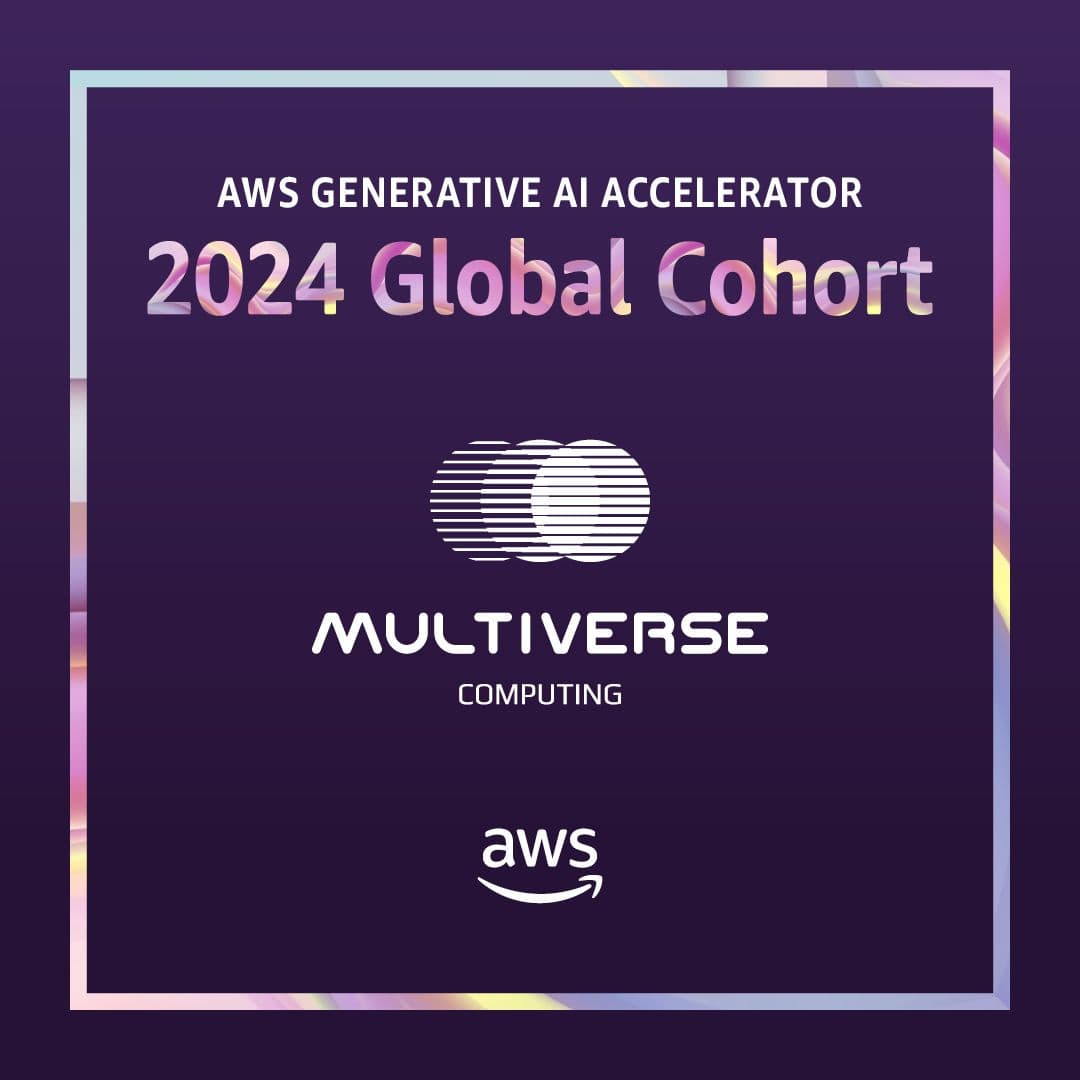The program identifies top startups using generative AI to solve complex challenges and help them scale. Participants will receive AWS credits, mentorship and learning resources to further their use of artificial intelligence (AI) and machine learning (ML) technologies and grow their businesses.
All 80 global participating startups will be invited to attend and showcase their solutions to potential investors, customers, partners and AWS leaders in December at re:Invent 2024 in Las Vegas.
“We are proud to have the support and expertise from AWS to boost our work in making AI greener and easier for more companies to use,” said Enrique Lizaso Olmos, CEO and co-founder of Multiverse Computing. “AWS recognized early on that cloud access would be the key to bringing powerful technology to companies of all sizes around the world and this accelerator class will do the same for generative AI.”
Multiverse Computing will use this opportunity to expand the capabilities of CompactifAI, software that uses quantum-inspired tensor networks to optimize large AI models by creating smaller, more efficient versions. This approach opens up additional use cases for large generative AI models by making them more portable and by reducing energy and compute requirements.
“AWS has supported us since the very beginning of Multiverse Computing, and now, as we scale globally, we are set to lead the second revolution in generative AI: the revolution of model editors.” said Rodrigo Hernandez, Global Director of Generative AI of Multiverse Computing.
The Multiverse Computing project team will work with CompactifAI and Meta’s Large Language Model Llama 3 405B to find ways to replicate the performance of large models within optimized compute environments. The company will use AWS compute resources, along with infrastructure designed for large-scale distributed training, such as Amazon SageMaker HyperPod, which manages models and training datasets across multiple AWS GPU instances without compromising performance.
“This new generation of startups is at the forefront of a transformative new wave, pushing the boundaries of what’s possible with artificial intelligence while bringing exciting new solutions to market,” said Jon Jones, Vice President of Go-to-Market at AWS and executive sponsor of the program. “Expanding the cohort for our Generative AI Accelerator is a testament to the potential we see for startups to usher in new innovations for customers in an increasingly AI-driven world. AWS is committed to fostering groundbreaking technologies and supporting visionary founders on their journey to solve the world’s biggest challenges.”
This initiative paves the way for dramatically lowering AI-related energy usage and advancing the development of green AI. In collaboration with UNESCO International Research Center on AI, Multiverse Computing will demonstrate how to incorporate green AI principles into all generative AI models, emphasizing the opportunities for decarbonized solutions.
More information on the Generative AI Accelerator can be found here.
About Multiverse Computing
Multiverse Computing is a leading quantum AI software platform dedicated to applying quantum and quantum-inspired AI solutions to address complex challenges in finance, energy, manufacturing, logistics, space, life sciences, healthcare and defense, delivering tangible value today. Leveraging expertise in quantum and quantum-inspired AI algorithms, the company maximizes results from both current quantum devices and classical high-performance computers. Its flagship product, Singularity, allows professionals across all industries to leverage quantum computing to speed up and improve the accuracy of optimization and AI models with existing and familiar software tools. The company also has developed CompactifAI, a LLM compressor which uses quantum-inspired tensor networks to make AI systems such as large language models more efficient and portable, reducing size by over 90%, with only a 2 – 3% drop in accuracy, and with over 50% savings in retraining and inference costs.
